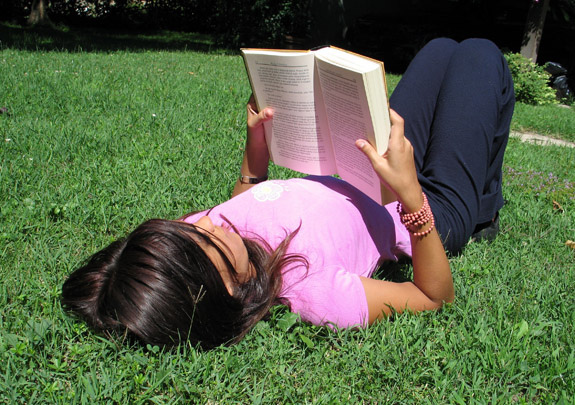Reading As A Cure For Depression
/ I read an interesting article recently about the positive effects of reading on depression. As someone who is lucky enough not to be affected herself by this challenge, but who has family members that are, the article naturally caught my eye.
I read an interesting article recently about the positive effects of reading on depression. As someone who is lucky enough not to be affected herself by this challenge, but who has family members that are, the article naturally caught my eye.
Starting in May 2013, parts of the U.K. are initiating a new program called ‘Books on Prescription’. As part of this program, doctors will be able to prescribe self-help and mood-boosting books to patients suffering from depression, anxiety, phobias, chronic pain, and eating disorders. A government grant will fund libraries to carry these books, making them available to readers. Supported by the Royal Colleges of General Practitioners, Nursing and Psychiatrists, the British Association for Behavioural and Cognitive Psychotherapies, and the British Psychological Society, this program is essentially cognitive behavioural therapy through reading and literature.
Established by Dr. Neil Frude, a clinical psychologist, this therapy model has been successfully used in Wales’ public libraries since 2005. Psychology professionals selected a list of self-help books on various topics for the program, and mood uplifting books were selected by readers and reading groups across the U.K. These include not only general books, but also those directed towards both younger and older age groups.
‘Bibliotherapy’ or the use of the written word as therapy is not a new concept. First used by the ancient Greeks, who considered libraries to be healing places, its use was promoted by Sigmund Freud as a component of his psychotherapeutic treatments, and was recommended for recovering World War II veterans. Current research suggests that reading can reduce stress levels in the reader up to 68%, more than listening to music or taking a walk, with positive physical stress readouts evident in only six minutes.
But how does reading affect our mindset?
- Reading allows the reader to connect with others undergoing similar challenges, reminding them that they aren’t alone. Finding similarities between themselves and that character may also assist in building their own self-confidence.
- It allows the reader to explore ways of overcoming their problems in a safe manner before trying a particular method for themselves.
- Reading can bring about a change in emotional state simply by immersion in the story. The pure escapism of a story can also give the reader something else to concentrate on other than their own challenges.
- The act of reading can cause the creation of new connections in the brain, especially in children and teenagers, allowing for differential brain function.
- It can assist children by demonstrating new coping skills, couched in terms they understand.
- Evidence exists that social reading/reading groups promote well-being and decreases isolation with participation in the group environment.
While bibliotherapy likely won’t replace medical aids for mental illness, it may assist in decreasing a patient’s reliance on them, or, for mild to moderate sufferers, may lighten their needs for prescription drugs and their accompanying side effects.
So you know what this means—next time you’re having a bad day and are feeling low, reach for a book!
Photo credit: Spirit-Fire




 Complete!
Complete! Planning
Planning